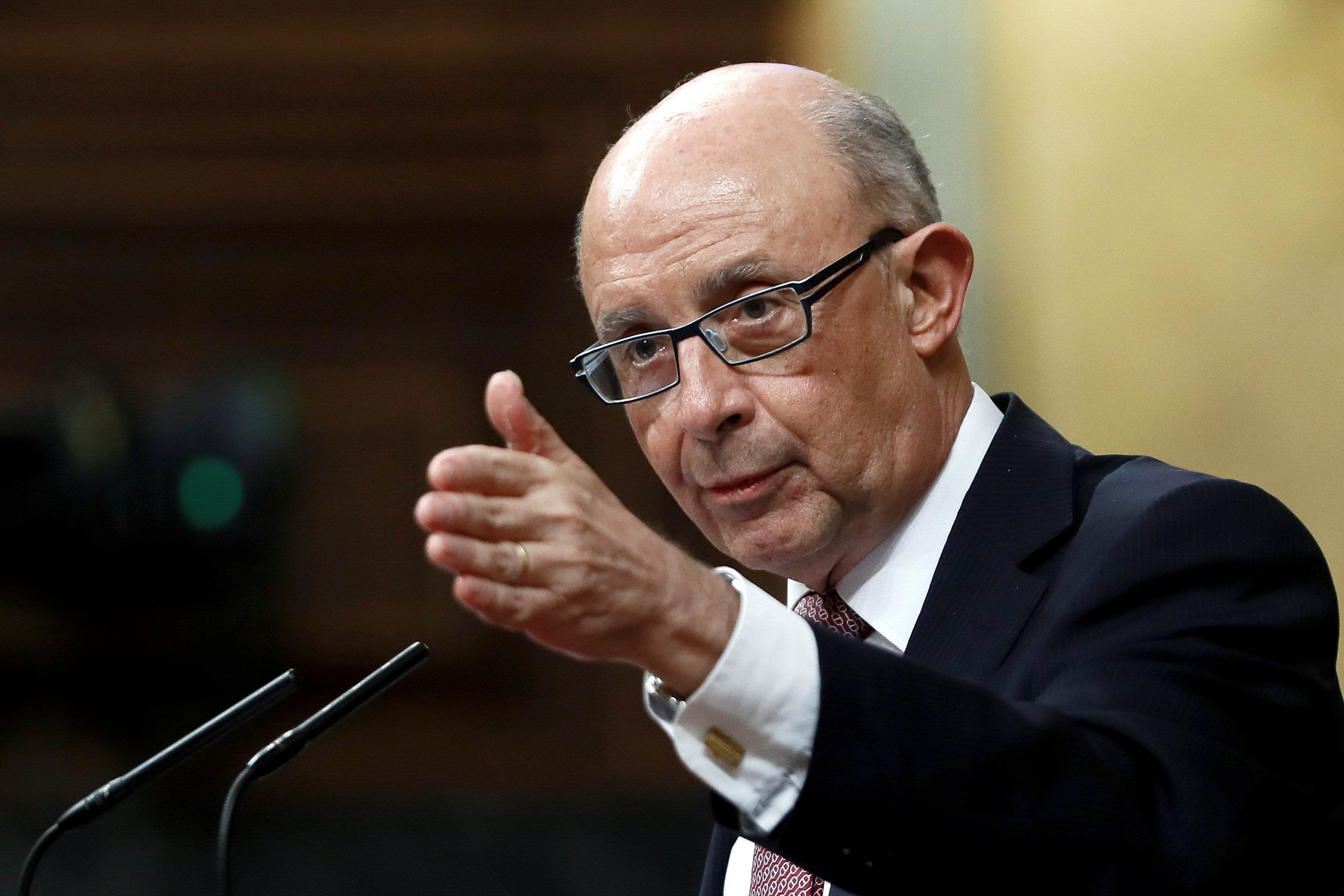The change has taken just over a week. After categorically denying it last Monday, now Spain's treasury minister, Cristóbal Montoro, says that he never said there wasn't misuse of public funds for last year's Catalan referendum. He made the claim in the Spanish Congress, alleging "there could have been a falsification of invoices" by the Catalan government, asking: "how can I say otherwise? There might have been".
The minister was speaking after the leader of Ciudadanos (Cs), Albert Rivera, accused him of helping pro-independence politicians in their legal defence against the charges of misuse of public funds for the referendum. He even called Montoro to reread his interview with El Mundo, in which he was quoted as saying "I don't know what money these 1st October ballot boxes from China, nor Puigdemont's maintenance, were paid for with. But I know it wasn't with public money".
And that wasn't the only time. Montoro had claimed the same thing at the time, in an appearance before the treasury and public works commission, days before more than two million Catalans went to the ballot boxes to be able to vote on their future, after his department had intervened in Catalan accounts.
Joking at Rivera
He joked that Cs' leader "doesn't know what an administrative procedure" is, having "no been entrusted with any direct management". He also suggested that Rivera had stuck to the headlines and should go through the rest of the interview: "you have to read from time to time. It's a bit dull, reading, but, really, you have to read in the times we're living in".
The Spanish minister had started his speech congratulating his party, as well as Cs and PSOE, because, he said, "if Catalonia remains [in] Spain" it's thanks to them and the application of article 155 of the Constitution: "Catalonia isn't independent due to the actions of the government of Spain and then due to the actions of the justice system, the preventive actions and the investigations, in that order".
Montoro continued with his defence, saying that the government he is part of is a democracy and that "democracy is disagreement and the separation of powers". He also insisted that "we want to return to normality and observance the law and the government exists to safeguard this. He then had a another message for Rivera: "let's not be mistaken ... we all have responsibilities".
Montoro continued complimenting his government, saying that "if we hadn't intervened in Catalonia's account, the separatists would have had hundreds of millions of euros at their disposal and they didn't have them", but also that "if they've falsified [accounts], they'll have to answer for that".
Denying thrice
Jesus told the apostle Peter that "before the cock crow, thou shalt deny me thrice"; Montoro has said on three occasions that the referendum wasn't paid for with public money.
The first was during the commission hearing last year. The second was this February in a report for a judge in Barcelona investigating the referendum. The third was just last week in the interview with Spanish newspaper El Mundo.
After this interview, Supreme Court judge revealed that the Civil Guard found that 2 million euros of public money (£1.7 million, $2.4 million) were spent on the referendum but, the next day, the secretary general of regional and local funding, Belén Navarro, backed the minister's side of the issue. Moreover, Spanish prime minister, Mariano Rajoy, on 7th February, also in the Congress, said that "Not a single euro of Spain's Regional Liquidity Fund was dedicated to the illegal referendum that was supposedly going to be held in Catalonia".
On the other hand, a state lawyer yesterday told the Barcelona court that he believes "the use of public funds to promote and organise" the referendum to be "proven" and "obvious"

